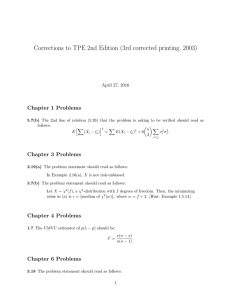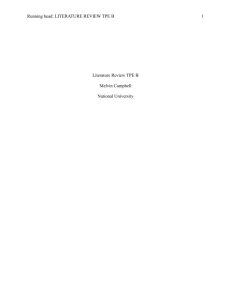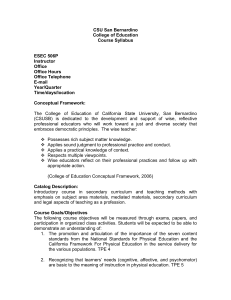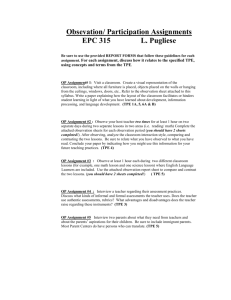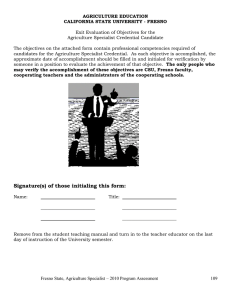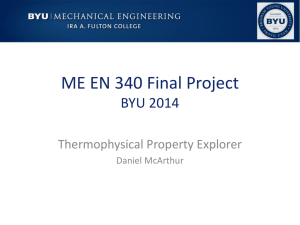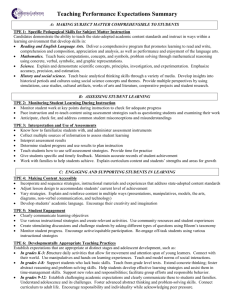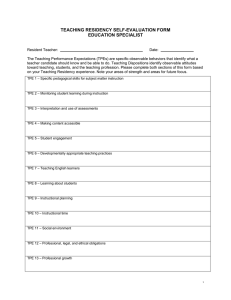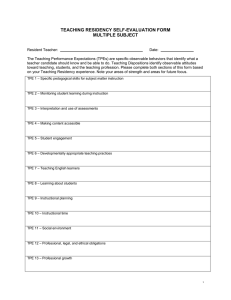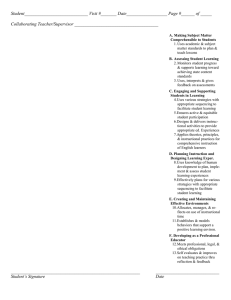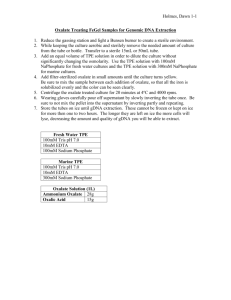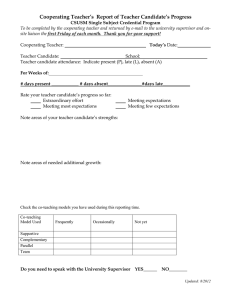Appendix A Learning Outcomes Aligned with Professional Standards
advertisement
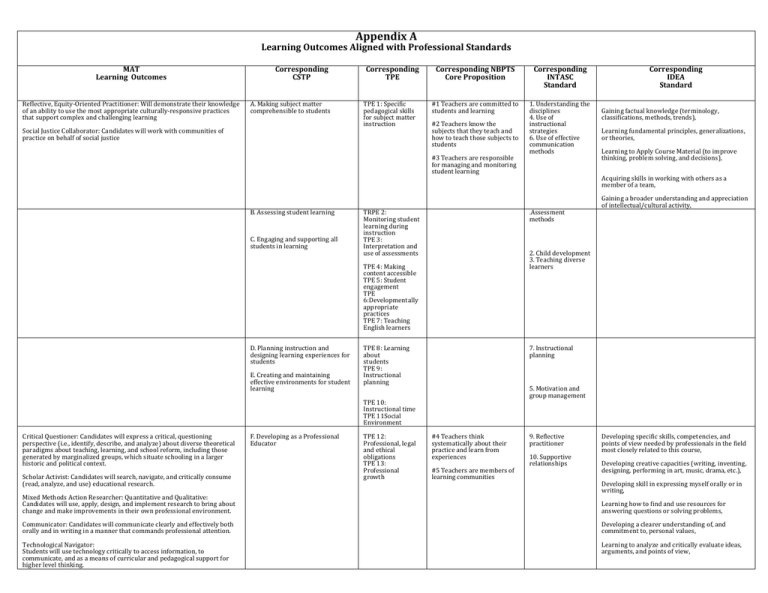
Appendix A Learning Outcomes Aligned with Professional Standards MAT Learning Outcomes Reflective, Equity-Oriented Practitioner: Will demonstrate their knowledge of an ability to use the most appropriate culturally-responsive practices that support complex and challenging learning Social Justice Collaborator: Candidates will work with communities of practice on behalf of social justice Corresponding CSTP A. Making subject matter comprehensible to students C. Engaging and supporting all students in learning D. Planning instruction and designing learning experiences for students E. Creating and maintaining effective environments for student learning Scholar Activist: Candidates will search, navigate, and critically consume (read, analyze, and use) educational research. Mixed Methods Action Researcher: Quantitative and Qualitative: Candidates will use, apply, design, and implement research to bring about change and make improvements in their own professional environment. Communicator: Candidates will communicate clearly and effectively both orally and in writing in a manner that commands professional attention. Technological Navigator: Students will use technology critically to access information, to communicate, and as a means of curricular and pedagogical support for higher level thinking. TPE 1: Specific pedagogical skills for subject matter instruction Corresponding NBPTS Core Proposition Corresponding INTASC Standard #1 Teachers are committed to students and learning 1. Understanding the disciplines 4. Use of instructional strategies 6. Use of effective communication methods #2 Teachers know the subjects that they teach and how to teach those subjects to students #3 Teachers are responsible for managing and monitoring student learning B. Assessing student learning Critical Questioner: Candidates will express a critical, questioning perspective (i.e., identify, describe, and analyze) about diverse theoretical paradigms about teaching, learning, and school reform, including those generated by marginalized groups, which situate schooling in a larger historic and political context. Corresponding TPE F. Developing as a Professional Educator .Assessment methods Learning fundamental principles, generalizations, or theories, Learning to Apply Course Material (to improve thinking, problem solving, and decisions), TPE 8: Learning about students TPE 9: Instructional planning 7. Instructional planning Gaining a broader understanding and appreciation of intellectual/cultural activity, 2. Child development 3. Teaching diverse learners TPE 4: Making content accessible TPE 5: Student engagement TPE 6:Developmentally appropriate practices TPE 7: Teaching English learners TPE 12: Professional, legal and ethical obligations TPE 13: Professional growth Gaining factual knowledge (terminology, classifications, methods, trends), Acquiring skills in working with others as a member of a team, TRPE 2: Monitoring student learning during instruction TPE 3: Interpretation and use of assessments TPE 10: Instructional time TPE 11Social Environment Corresponding IDEA Standard 5. Motivation and group management #4 Teachers think systematically about their practice and learn from experiences #5 Teachers are members of learning communities 9. Reflective practitioner 10. Supportive relationships Developing specific skills, competencies, and points of view needed by professionals in the field most closely related to this course, Developing creative capacities (writing, inventing, designing, performing in art, music, drama, etc.), Developing skill in expressing myself orally or in writing, Learning how to find and use resources for answering questions or solving problems, Developing a clearer understanding of, and commitment to, personal values, Learning to analyze and critically evaluate ideas, arguments, and points of view,
